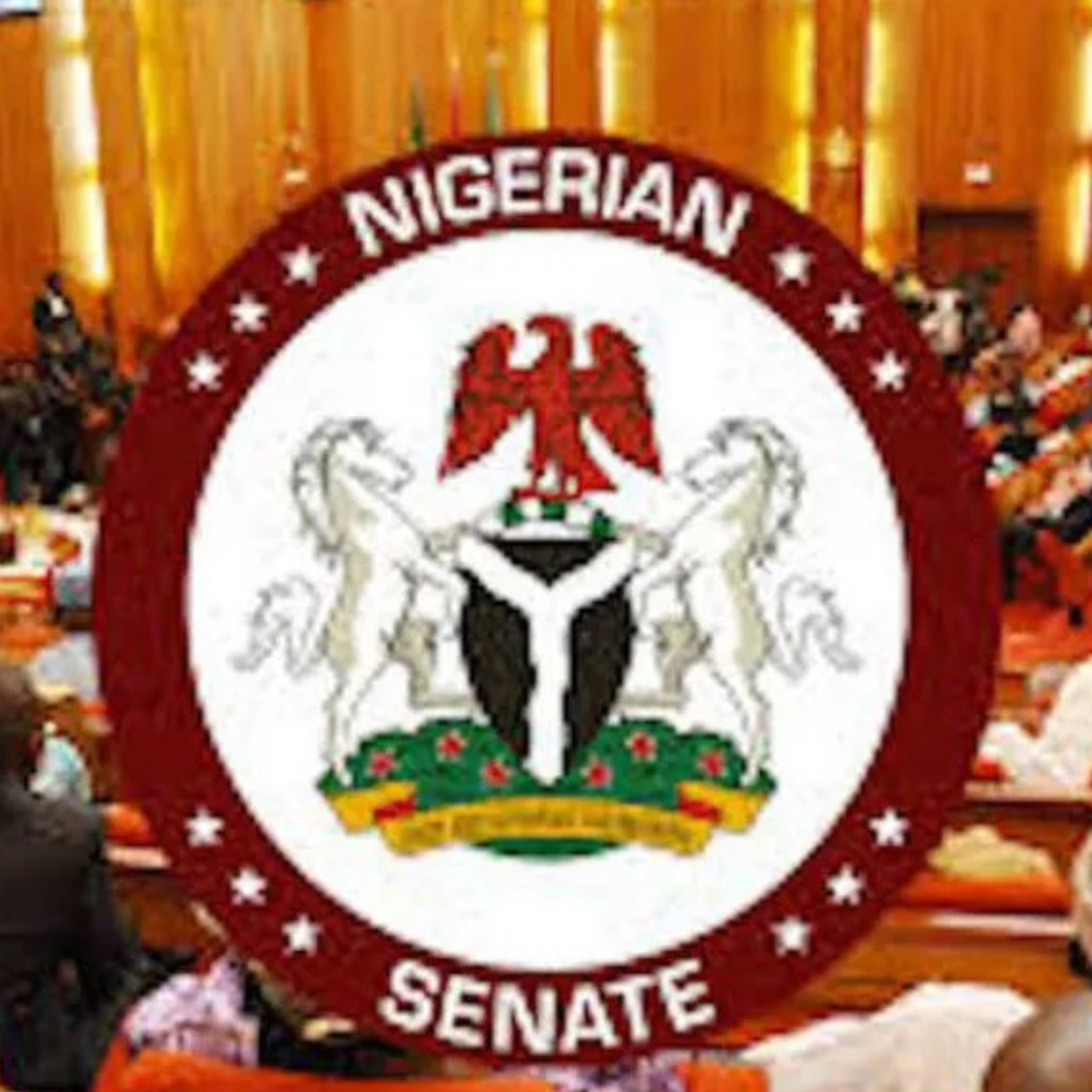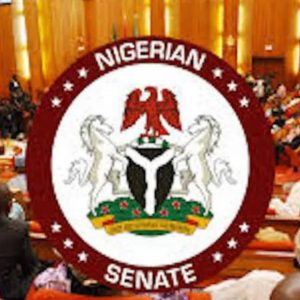Nigerian Senate
By Our Reporter
The Senate, on Thursday, summoned the service chiefs over the unremitting insecurity in the country.
At the plenary on Thursday, the Red Chamber said it would engage the service chiefs in a closed session.
This was as the lawmakers demanded that a National Security Policy document outlining the framework for an improved and streamlined synergy and coordination among the various security agencies in the country.
The Senate resolutions followed a motion moved by Senator Abdulaziz Yar’Adua.
According to Yar’Adua, the contemporary security landscape in Nigeria poses unprecedented challenges that outstrip the protective capabilities of any security agency alone.
He said, “Nigeria is facing numerous simultaneous security crises. These include Boko Haram in the North-East; the activities of bandits and kidnappers in the North-West; the activities of gunmen in the South-East and South-South; and other forms of criminality like armed robbery, herders/farmers clashes and cross-border crimes.
“The primary focus of security agencies should be directed at making Nigeria safe, the insecurity in Nigeria can only be tackled if all security agencies and parastatals that play key roles in national security work in synergy under a centralised command structure to ensure that the country is highly secure. This cooperative effort reinforces the interdependence and interrelatedness of Nigerian security agencies.”
Meanwhile, the House of Representatives, on Thursday, declined to take presentations from representatives of the Service Chiefs who were billed to appear in the chamber for the commencement of a policy brief series aimed at redefining the concept of governance in the country.
The PUNCH reports that the series tagged “Sectoral debate” is part of initiatives by the House to improve its constitutional oversight of the executive arm of government, in line with the Legislative Agenda for the 10th Assembly launched on Monday.
Invited to take the floor on Thursday were the Service Chiefs made up of the Chief of Defence Staff, Chief of Army Staff, Chief of Naval Staff, Chief of Air Staff and the Inspector General of Police.
However, rather than appearing in person, the Service Chiefs sent representatives, a development that infuriated the lawmakers who arrived at the chambers in the early hours of the day for the exercise.
Shortly after introducing themselves, the Deputy Speaker, Benjamin Kalu, drew the attention of the lawmakers to the fact that the Service Chiefs were invited to appear in person and not by proxy.
Kalu said, “The House extended invitations to heads of security agencies not for investigations but for dialogue and establishing the things around security. It behoves the agencies to send their number one officers because the parliament is the number one parliament of government.
“The gentlemen they have sent have great profiles. They have served the nation in various capacities and are competent to discuss with us but the mistake based on the provisions of Sections 88 and 89, has not been satisfied. One may ask why their number one officers have not appeared before the House.
“It has been the tradition of the House that when leaders are invited, be they from public or private sectors, they must appear in persons. I want to say that we should not create separate traditions for our House.
“I, therefore, move that this sectoral engagement be suspended until the leaders of the security agencies that we invited who are our friends, who are working for Nigeria, who we are proud of, come to address us personally.”
Speaking after plenary, House spokesman and Chairman, Committee on Media and Public Affairs, Akin Rotimi said, “Members unanimously agreed that we cannot be taking presentations from persons who are not heads of security agencies at a time we are finding solutions to the security challenges affecting all of us.”


